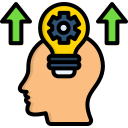
Enhancing Programming Expertise via Open Source Contributions
Open source contribution is a powerful catalyst for growing your programming skills while building a portfolio that speaks for itself. By engaging with real-world codebases, collaborating with global communities, and tackling diverse technical challenges, developers can accelerate their journey from novice to expert. This page delves into how contributing to open source projects can sharpen your coding abilities, expand your professional network, and facilitate deep, continuous learning.
Collaborative Learning in the Open Source Ecosystem
Working within established open source communities brings you into direct contact with experienced programmers who are eager to share their knowledge. Whether through detailed code reviews or insightful discussions, these veterans impart wisdom on best practices, coding conventions, and efficient problem-solving. The feedback you receive on your contributions can be transformative, pinpointing areas for improvement and providing practical guidance. Over time, mentored interactions profoundly shape your coding style and technical judgment, bridging the gap between theoretical understanding and real-world application.
Tackling Real-World Bugs and Feature Requests
Addressing issues within live open source projects immerses you in the world of practical software maintenance. Bugs can be subtle, and feature requests frequently require creative thinking and careful system design. As you dive into these tasks, you learn how to diagnose problems, locate root causes, and implement effective fixes. Understanding the broader context and impact of your changes hones your analytical abilities and teaches you how to anticipate and mitigate unintended consequences—a skillset vital for any proficient developer.
Mastery of Version Control and Development Workflows
Version control systems like Git are central to open source collaboration. Regularly contributing to such projects enforces best practices for branching, merging, and resolving conflicts. Workflow concepts—ranging from pull requests to issue tracking—become second nature as you navigate contributions from multiple participants. Mastery of these tools transcends academic exercises, equipping you with the organizational and procedural skills essential for efficient, large-scale software development in any professional context.
Adapting to Evolving Project Standards and Practices
Open source projects are often at the forefront of adopting new practices, tools, and standards. Staying actively involved compels you to remain agile and responsive to evolving expectations, whether it’s new coding standards, updated dependencies, or process changes. This ongoing adaptation cultivates the flexibility needed to thrive in fast-changing tech environments. Contributing regularly immerses you in a culture of continuous improvement, teaching you to embrace change and proactively upskill.
Previous slide
Next slide

Networking and Professional Growth Opportunities
01
Every pull request, issue resolution, and code review you participate in becomes a public showcase of your abilities. Consistent, high-quality contributions earn the respect of peers and project maintainers alike, gradually establishing your credibility in the wider tech community. This reputation not only boosts your confidence but also makes you an attractive candidate for collaborations or job opportunities. Over time, your GitHub or GitLab profile becomes a testament to your expertise and engagement.
02
Open source communities are composed of developers, project managers, designers, and technical writers from around the world. Frequent interactions on forums, chat platforms, and mailing lists naturally extend your professional network. These connections can result in lasting friendships, collaborative side projects, and valuable introductions. The diversity of backgrounds and expertise you encounter enriches your perspectives and may lead directly to unexpected roles or initiatives within and beyond the open source world.
03
Many tech employers value open source involvement as a marker of initiative and practical experience. Demonstrating the ability to contribute to—and sometimes lead—significant projects can be pivotal in career growth. Open source contributions often attract attention from recruiters and hiring managers, serving as a non-traditional resume that highlights both your technical proficiency and collaborative spirit. For some, open source engagement can even transition into part-time or full-time positions with organizations they have already supported.
